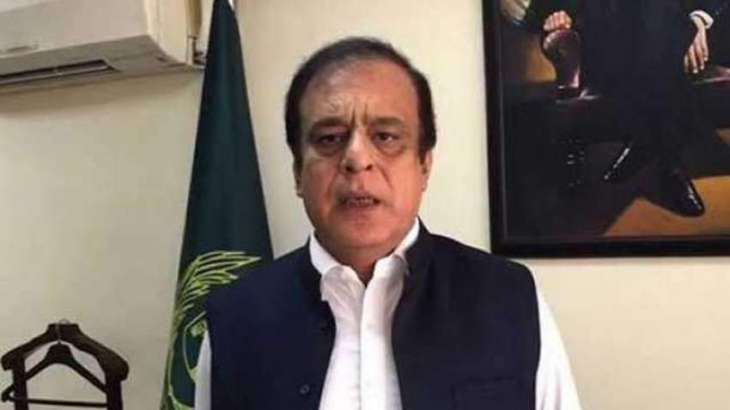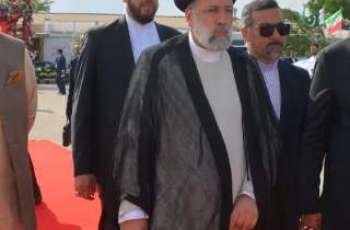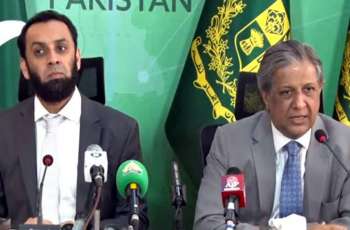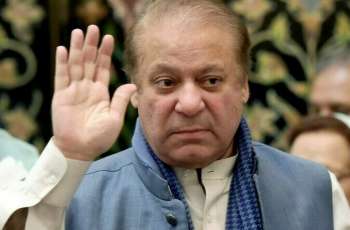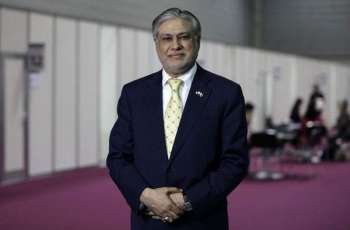Federal Minister for Information and Technology says SC decision is historic, it has also directed ECP to use the latest technology and take the necessary steps for fair elections polls.
PESHAWAR: (UrduPoint/Pakistan Point News- March 1st, 2021) Information Minister Shibli Faraz said that the Supreme Court's judgement in Presidential reference was historic under which the Senate elections will be held as per Article 226 of the constitution.
Shibli Faraz said that the apex court has directed the Election Commission of Pakistan to use the latest technology and take the necessary steps to ensure transparency in the polls. He said the court has also ruled that secrecy of ballot is not permanent.
He expressed these words while talking to the reporters on Monday.
The Information Minister asked the Election Commission of Pakistan to take requisite steps for ensuring transparency in the Senate elections in the light of the Supreme Court's decision.
Earlier today, the Supreme Court announced its verdict on Presidential reference regarding to hold Senate elections.
A five-member larger bench of the apex court led by Chief Justice of Pakistan Gulzar Ahmed made thi announcement.
The Bench said the election commission of Pakistan should use the latest technology to ensure fair and transparent elections.
During the proceedings, Advocate Khurram Chughtai, the counsel who was representing Lahore High Court Bar Association (LHCBA), raised this question during hearing of Presidential reference to seek Supreme Court’s opinion about holding Senate elections through open vote.
The counsel contended that the the Federal government did not have the authority to seek the court's opinion.
“The ministers enjoy special status on the premises of the parliament or in the legislative assemblies. And outside the parliament, they are like other ordinary citizens,” said the counsel.
“The court used to conduct hearings to get government’s views but not hearing us,” he further said.
At this, the CJP asked Advocate Chughtai to answer the raised questions. Mr. Chughtai said that many of the ministers were part of the constitutional reforms committee and President Alvi himself was member of that committee.
Justice Ahsan said the election commission was in deep slumber and was not ready to wake up , observing that the ECP was responsible to hold elections and to end corruption.
“ We asked again and again what steps were taken to end corruption. No answers were given,” the judge further remarked.
The AGP said that the examining the ballot papers would not lead to a violation of secrecy.
Justice Yahya Afridi also raised question that whether the court's opinion on the presidential reference would be considered final. On it, the AG replied that the government would be bound by it.
The lawyer for the Election Commission of Pakistan (ECP) requested the court to give its opinion before February 28 so the process for holding Senate elections could be completed in time.
Attorney General Khalid Jawed Khan had on Dec 23 moved the 11-page reference under Article 186 of the Constitution relating to the advisory jurisdiction of the Supreme Court.
The president had sought the answer to the question of whether or not the condition of secret ballot under Article 226 of the Constitution applied to the Senate elections.
PBC lawyer Mansoor Usman Awan contended that steps against corrupt practices should be taken before the elections and if the government's argument was accepted, it would render Article 218 (related to the formation of election commission) 'useless'.
“The allegation of corrupt practices has to be separated through evidence [and] cannot be associated with ballot papers."
The PBC lawyer replied that the election commission took lists from political parties for election on specific seats beforehand and the Names on the list are then scrutinised according to the principle of proportional representation.
The names of the appointed candidates are then made public, he informed the court.
Justice Bandial asked whether Awan meant to say all elections were held in accordance with Article 226. The PBC lawyer replied that it would affect all elections if Senate elections were held through open ballot.
"The Constitution does not mention holding any elections through secret ballot," he said, arguing that the term election itself meant secret ballot. "It is necessary that every vote be secret," he emphasised.
Elaborating on the concept of proportional representation, the PBC lawyer gave the example of the Balochistan Assembly which he said had a total of 65 members.
“In every election, there are 10 political parties and one independent candidate [out of which] only three political parties hold a majority. What would happen to the other parties? They could unite and change the situation. Any alliance in Balochistan could change the situation,”.
The chief justice then remarked that the only question in front of the court related to Article 226 of the Constitution (all elections under the Constitution, other than those of the prime minister and the chief minister, shall be by secret ballot), pointing out that the president had not raised the issues of single transferable vote and proportional representation.
“The court has to be restricted to the questions asked in the reference. We will not go out of our boundaries,”.
He asked the reason why a constitutional amendment was not being done to end corruption in the election process, going on to observe that resolutions were passed by the parliament to make the election process transparent.
“Political parties are accepting [that there are] corrupt practices in the election process. You saw the video, you want to repeat that?" the CJP questioned, referring to a video, shared on Twitter by PTI's official account, that showed some parliamentarians sitting before and counting stacks of cash reportedly ahead of the Senate elections in 2018.
“Everyone is accepting there are corrupt practices [but] no one is taking measures to stop it,” he further said. The CJP said the election commission was a "guard against malintent", questioning what the ECP could do if voters made secret agreements behind closed doors.
“The Consitution was made in 1973, several governments came but no one looked at this problem. PPP and PML-N, despite forming governments, did nothing about this. The parliament did nothing. The PTI government has taken this up, the incumbent government is trying to stop this mistake,” CJP Ahmed remarked.
The PBC lawyer noted that the bill for electoral reforms had been introduced in the parliament.
The chief justice said if the parliament agreed with the bill, then it should pass it or reject it otherwise. "It is not the matter of one political party. All political parties want this."
After hearing all parties, the Supreme Court on Thursday reserved its opinion on presidential reference seeking the apex’s views about holding Senate elections through open vote.
